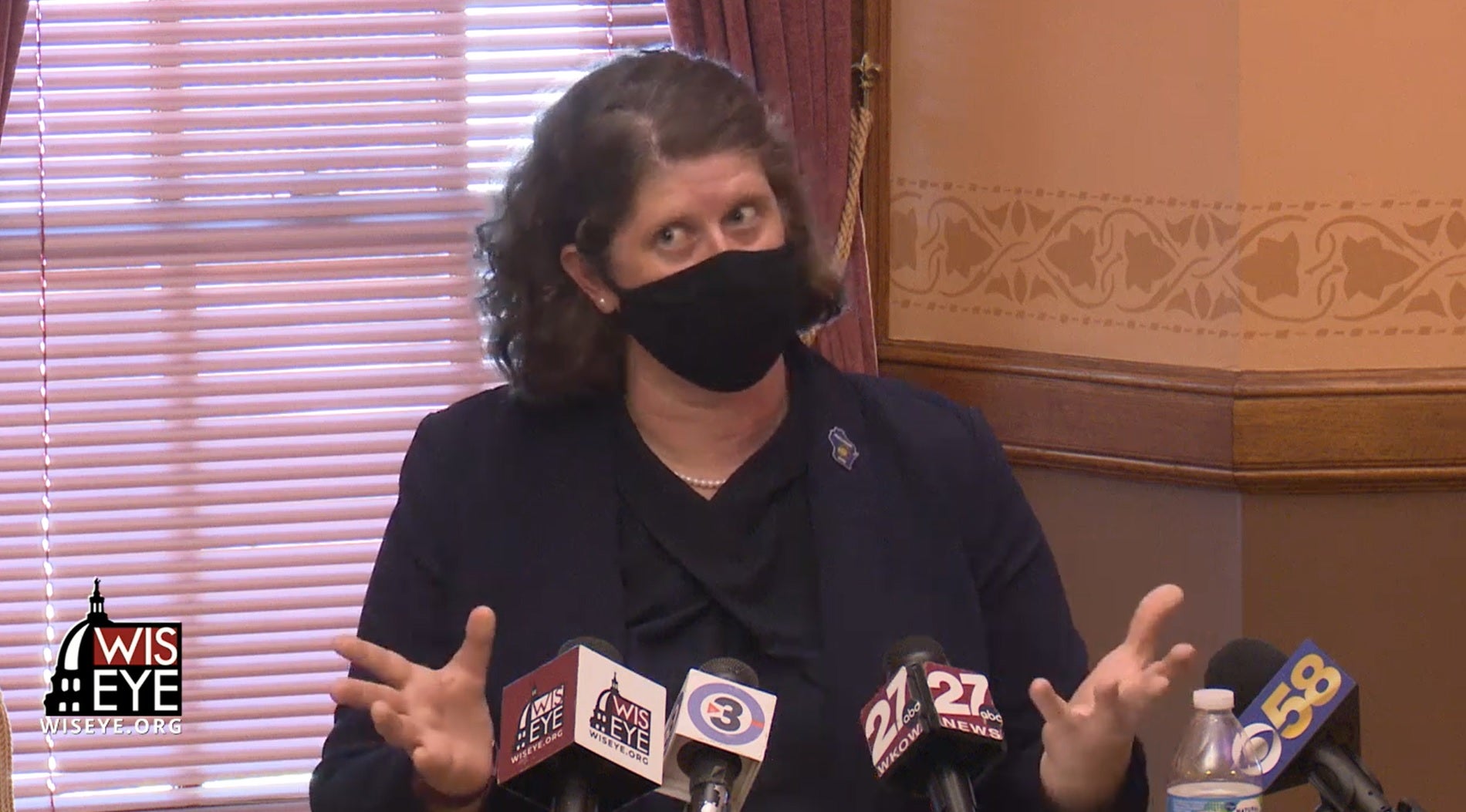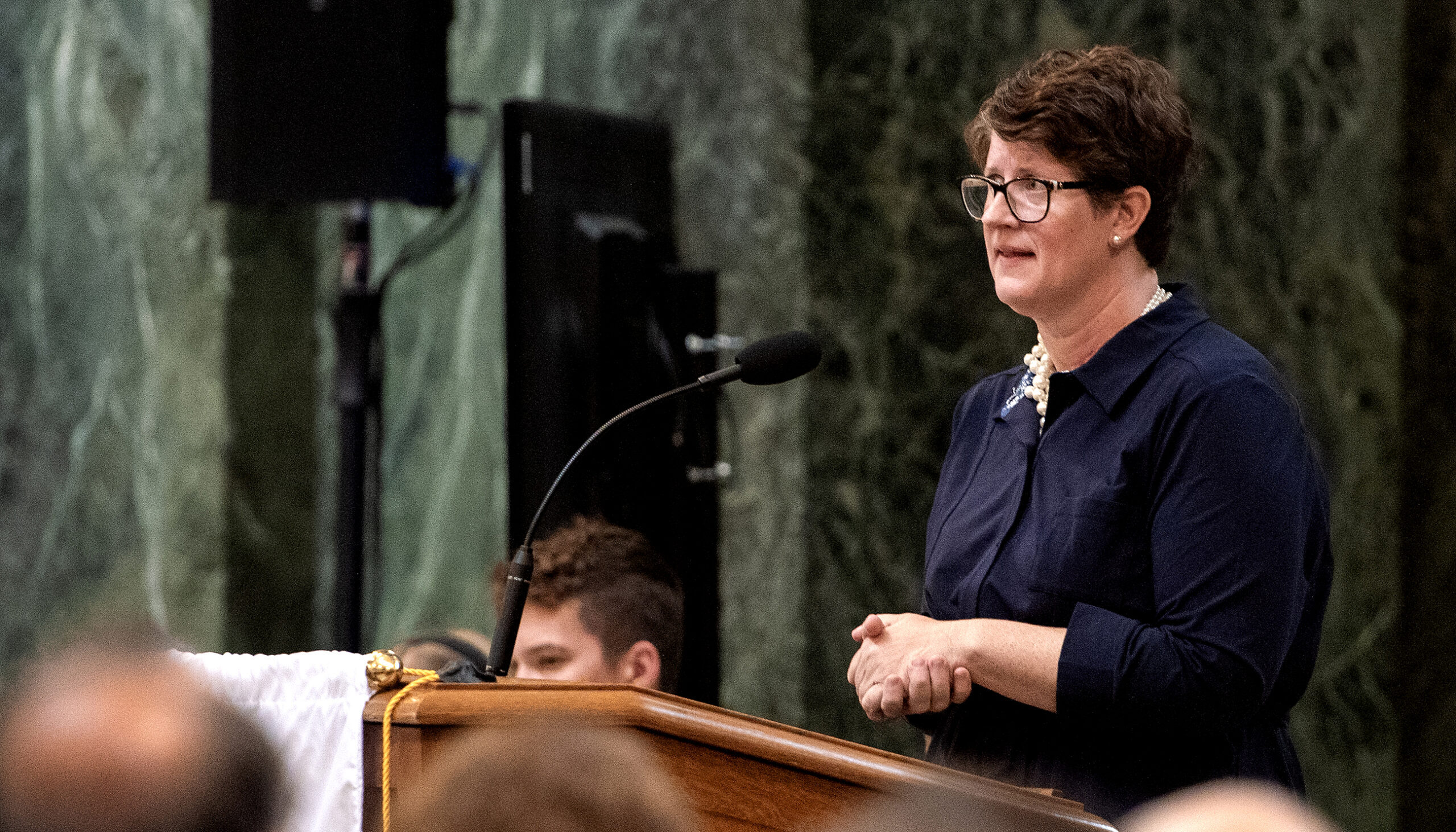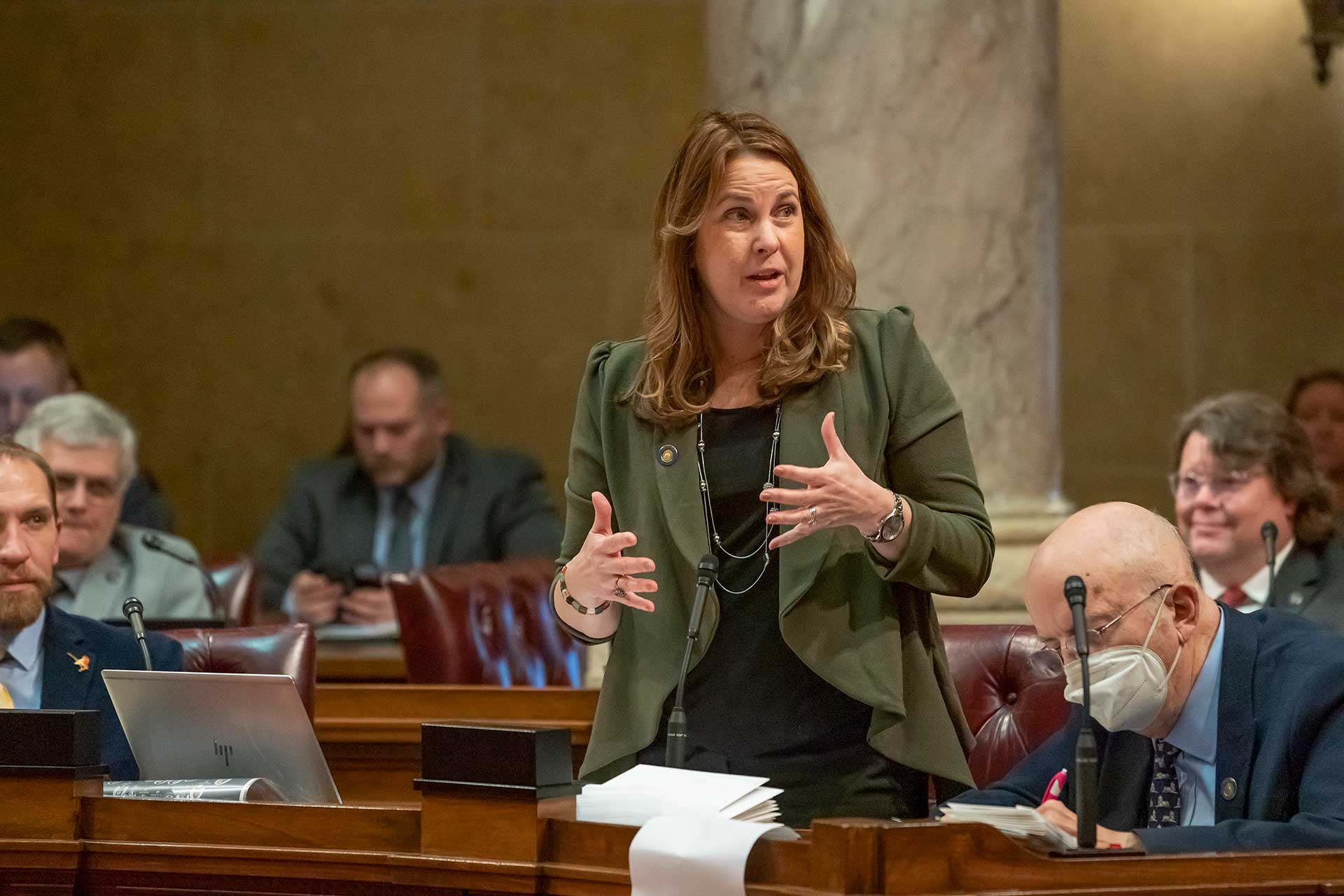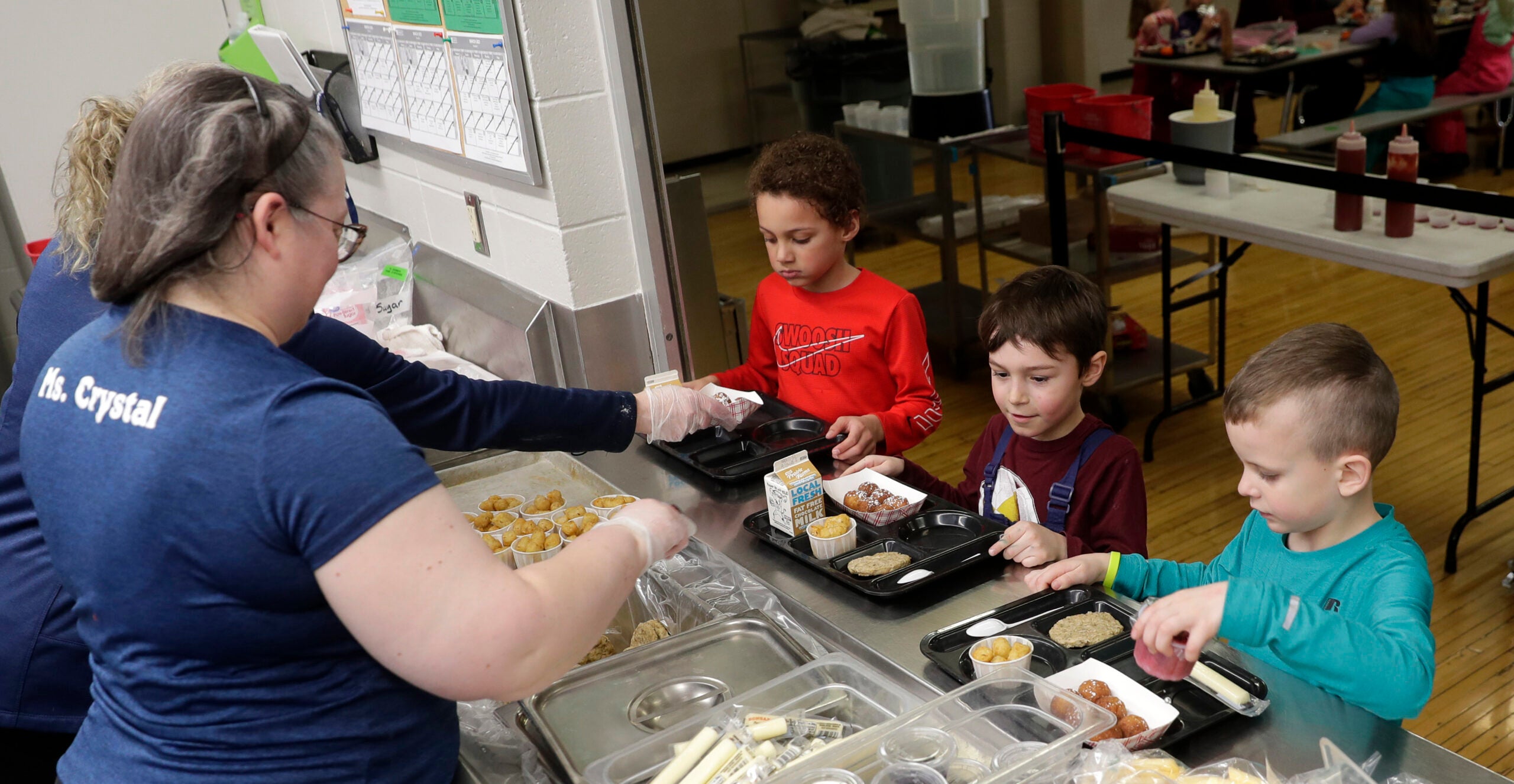In her first-ever State of Education address, Wisconsin State Superintendent Jill Underly took aim at the state’s school funding system and criticized lawmakers for not investing more money in education.
The state budget for the next two years doesn’t include any increase in how much money schools receive from the state. It also didn’t raise the caps on how much school districts can take in through a combination of state funding and property taxes.
“I’m tired of our schools and our children crying for a banquet, and when there’s an opportunity to have it, being served crumbs by this legislature,” she said. “In 2020, we graduated an entire generation of kids who have known nothing but austerity in our school funding.”
Stay informed on the latest news
Sign up for WPR’s email newsletter.
School districts in Wisconsin have increasingly taken school funding questions to voters in referendums over the last several decades, with a high rate of passage. In 2020, for example, 90 percent of school referendums passed.
“Relying on local referenda only drives inequity and puts us further away from providing a quality public education to every child in every corner of the state,” Underly said. “And, frankly, it lets the state leaders in this building off the hook from their constitutional obligations to our kids and our schools.”
In an emailed response to Underly’s speech, Assembly Speaker Robin Vos pushed back on the idea that schools need more money.
“Funding for K-12 education in Wisconsin is at historic levels, and this year our schools received a massive amount of one-time federal dollars,” Vos wrote. “Throwing even more money at the problem will not fix it. Evaluating curriculum, academic testing and allowing parents to be a part of the conversation are real solutions Legislative Republicans will continue to fight for in the classroom.”
Underly also hammered lawmakers on legislation. In announcing that she’s forming a task force to create a roadmap and resources for better civics education in Wisconsin, she criticized legislators for holding hearings on several bills last week — including one on civics education — with only 24 hours’ notice.
“If you want a stronger civics curriculum, you’ll find no resistance from me,” she said. “Maybe it will teach the Legislature the ironies of all ironies: that if you want open and clean government, you don’t post your notice for a hearing on a short deadline so that the stakeholders either don’t know about it, or cannot get to the Capitol in time to testify.”
A recent report from the conservative-leaning Thomas B Fordham institute graded Wisconsin’s civics and U.S. history standards and gave the state Fs in both. Underly said she wanted to work with lawmakers to ensure Wisconsin students earned credits in civics education before graduation.
The Republican Party of Wisconsin also responded to the speech, criticizing Underly and Gov. Tony Evers for school closures last year due to the coronavirus pandemic.
“Wisconsin students are suffering from a year of learning loss, mass school closures and Democrat leaders that are in the pocket of their teachers union donors,” said executive director Mark Jefferson in an email. “The state of education continues to get worse under teachers union puppets Jill Underly and Tony Evers.”
Underly called for a statewide investment in full-day, all-week four-year-old kindergarten and early education. As superintendent of Pecatonica schools, her job prior to being elected state superintendent, she pushed forward a full-day 4K program.
“We need game-changing solutions that level the playing field and provide all kids with opportunities that will set them up for a lifetime of success,” she said in her Thursday speech. “Every family in Wisconsin should have the chance to send their child to full-day, full-week, and fully funded four-year-old kindergarten, and we should support 3K options in communities that want to offer them.”
In addition to a call for civics education, Underly called for more civility in state and local discussions about education.
Over the past 18 months, school districts around the state have seen heated school board meetings over pandemic learning modes, masking, equity and other issues. School board members have received death threats, shut down meetings that got out of hand, and tried to fend off election challenges and recall efforts — leading some to not take up COVID-19 precautions or other controversial issues at all.
Underly said she was impressed by how well kids handled pandemic-related rules in classrooms she’s visited this year, and urged parents to set a good example for their kids.
“I know masks are a contentious issue in so many of our communities, but the kids didn’t seem bothered — they were willing to do what they needed to do in order to keep each other safe and to keep their learning free of disruption,” she said. “We could learn a lot from them.”
Wisconsin Public Radio, © Copyright 2025, Board of Regents of the University of Wisconsin System and Wisconsin Educational Communications Board.






